26. October 2020 - 11:24
The great Russian author Feodor Dostoevsky found in St. Ambrose of Optina not only inspiration for the character of Elder Zosima in Brothers Karamazov—he also acquired peace and repentance in the famous elder’s tiny monastic cell. The following is an overview of Feodor Mikhailovich’s relationship to Elder Ambrose of Optina, who is celebrated today.
How close did Dostoevsky’s Zosima come to Ambrose of Optina? What did the famous author take away from his memorable meeting with St. Ambrose? The well-known Dostoevsky scholar Professor Sergei Vladimirovich Belov (June 23, 1936–November 7, 2019) discusses St. Ambrose as one of the important personages in Feodor Dostoevsky’s life in this chapter from his two-volume encyclopedia entitled, F. M. Dostoevsky and His Circles.1
The writer’s wife, A. G. Dostoevskaya, recalls: “On 16 May 1878, our family was stricken with a terrible misfortune—our youngest son Lyosha [diminutive of Alexei] died <…>. In order to soothe Feodor Mikhailovich at least a little and distract him from his sad thoughts, I asked Vl[adimir]. S. Soloviev, who visited us during those days of our sorrow, to persuade Feodor Mikhailovich to go with him to Optina Hermitage, where Soloviev was planning to go that summer. It was Feodor Mikhailovich’s longtime dream to visit Optina Hermitage….”
14. August 2020 - 12:46
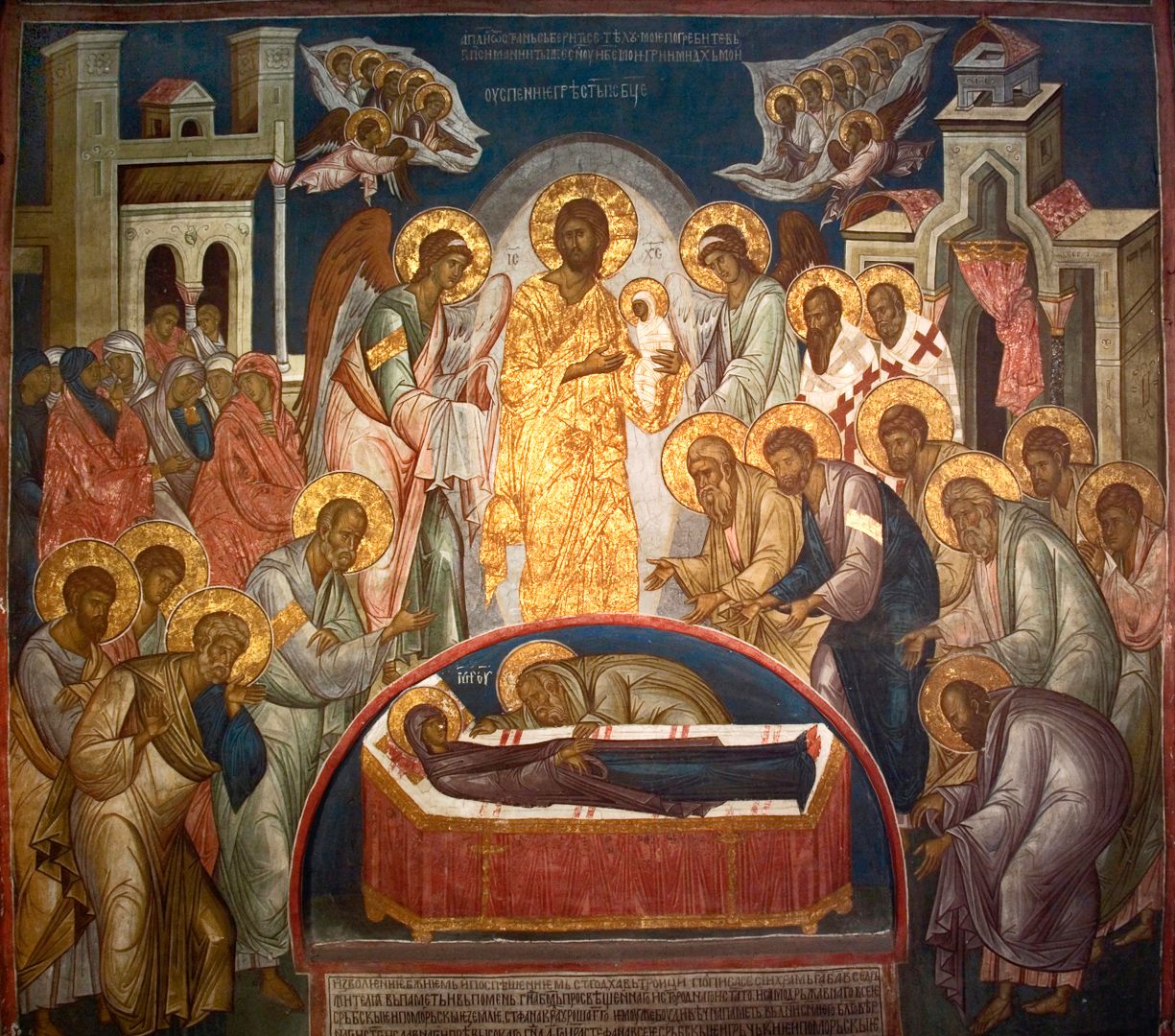 The Dormition fast was established as preceding the great feasts of the Transfiguration of the Lord and of the Dormition of the Mother of God. It lasts two weeks—from August 1/14–August 14/27 (old style/new style).
The Dormition fast was established as preceding the great feasts of the Transfiguration of the Lord and of the Dormition of the Mother of God. It lasts two weeks—from August 1/14–August 14/27 (old style/new style).
The Dormition fast comes down to us from the early days of Christianity. We find a clear reference to the Dormition fast in a conversation of Leo the Great from around the year 450 A.D. “The Church fasts are situated in the year in such a way that a special abstinence is prescribed for each time. Thus, for spring there is the spring fast ]—the Forty Days[Great Lent; for summer there is the summer fast… [the Apostles’ fast]; for autumn there is the autumn fast, in the seventh month [Dormition fast]; for winter there is the winter fast [Nativity fast].”
27. July 2020 - 16:22
by Archimandrite Justin Popovich
The Bible is in a sense a biography of God in this world. In it the Indescribable One has in a sense described Himself.
The Holy Scriptures of the New Testament are a biography of the incarnate God in this world. In them it is related to how God, in order to reveal Himself to men, sent God the Logos, who took on flesh and became man--and as a man told men everything that God is, everything that God wants from this world and the people in it.
6. June 2020 - 12:28
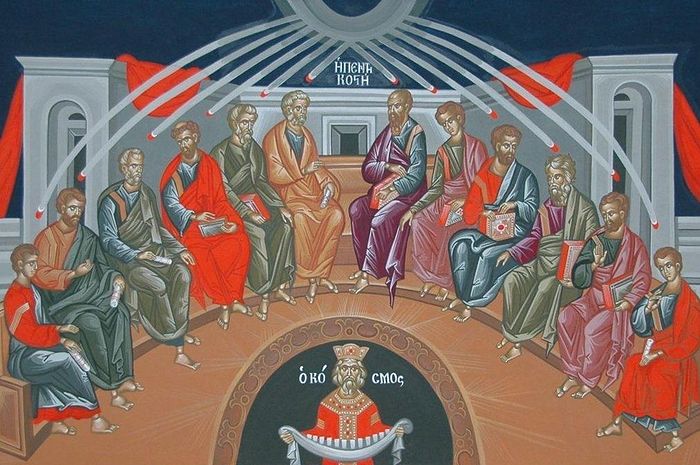 The Feast of the Descent of the Holy Spirit on the Apostles, which this year we prayerfully celebrate on June 7, is the celebration of the triumph of Divine Love, the feast celebrating the unification of all people.
The Feast of the Descent of the Holy Spirit on the Apostles, which this year we prayerfully celebrate on June 7, is the celebration of the triumph of Divine Love, the feast celebrating the unification of all people.
Thus, in the kontakion of the Feast we hear, “Once, when He descended and confounded the tongues, the Most High divided the nations [at the construction of the tower of Babel – Genesis 11:5-9]; and when He divided the tongues of fire, He called all men into unity; and with one accord we glorify the All-Holy Spirit.” When, in the descent of the Holy Spirit [God] distributed the tongues of fire, He called everyone to unity. In order to destroy the people’s evil intent in constructing the Tower of Babel, God descended and caused everyone to speak in different languages and no longer understand one another; thus construction of the tower came to an end.
15. April 2020 - 15:09
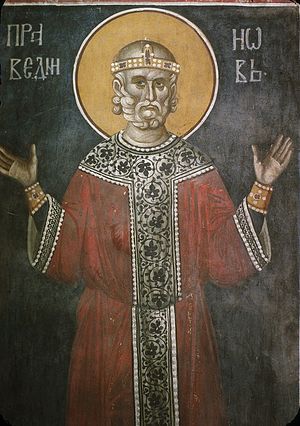 The Old Testament is revealed in the New Testament. The Book of Job reveals its meaning in an amazing way. It is read during the church services during Great Lent. This book prepares us to meet with the Suffering and Risen Christ.
The Old Testament is revealed in the New Testament. The Book of Job reveals its meaning in an amazing way. It is read during the church services during Great Lent. This book prepares us to meet with the Suffering and Risen Christ.
What does the Old Testament tell us about? It tells us about the interrelationship between God and man, just as do all the other Old Testament books. The Lord rules the world, rewards the righteous, and punishes sinners. However, as we can see from the Book of Job, not every affliction is punishment for sin.
In the holy book we read about how Job experiences onerous torments on the brink of death, and his friends urge him to repent in order to make God’s punishment cease. Job’s friends do not see that he is accepting torments not for his secret sins, or that the instigator of all his suffering is satan, who envies God and hates God’s servants. Job wars with satan. Christ accepts sufferings as does Job—not for himself, not for his iniquities. Christ is crucified for the sins of others.

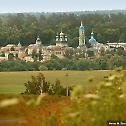
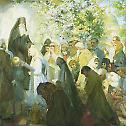
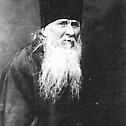






 The Dormition fast was established as preceding the great feasts of the Transfiguration of the Lord and of the Dormition of the Mother of God. It lasts two weeks—from August 1/14–August 14/27 (old style/new style).
The Dormition fast was established as preceding the great feasts of the Transfiguration of the Lord and of the Dormition of the Mother of God. It lasts two weeks—from August 1/14–August 14/27 (old style/new style). The Feast of the Descent of the Holy Spirit on the Apostles, which this year we prayerfully celebrate on June 7, is the celebration of the triumph of Divine Love, the feast celebrating the unification of all people.
The Feast of the Descent of the Holy Spirit on the Apostles, which this year we prayerfully celebrate on June 7, is the celebration of the triumph of Divine Love, the feast celebrating the unification of all people.  The Old Testament is revealed in the New Testament. The Book of Job reveals its meaning in an amazing way. It is read during the church services during Great Lent. This book prepares us to meet with the Suffering and Risen Christ.
The Old Testament is revealed in the New Testament. The Book of Job reveals its meaning in an amazing way. It is read during the church services during Great Lent. This book prepares us to meet with the Suffering and Risen Christ.